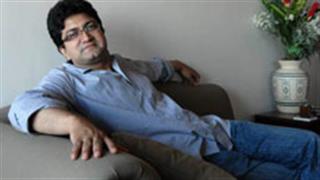Hollywood may have wiped out the "whole world's indigenous film industry" but Bollywood has held up, giving room to talent from
all over the globe, says Dibakar Banerjee, the maker of acclaimed films such as "Khosla Ka Ghosla" and "Oye Lucky! Lucky
Oye!"
Stating that Bollywood had not buckled under Hollywood pressure, Banerjee said: "Today Bollywood has become one of the last
few independently surviving and independently profitable industry, as Hollywood has managed to wipe out the whole world's
indigenous film industry, and Bollywood is one of those last frontiers that's holding up because of its economic liberalisation."
"It has room for talent from all over the world (for those) who do not have as many avenues in their countries; so they come to our
country to find avenues. We are the last alternative to big Hollywood presence in the world," Banerjee told in an interview here.
"People (from abroad) are coming to us because we are a good second choice, it's profitable and our business booms on its own,
we don't have to export our films. Indians in India and all over the world are enough to make our films profitable," he added.
Known for using innovative storytelling techniques in his directorial ventures, Banerjee is currently gearing up for the world premiere
of "Shanghai" at the 13th International Indian Film Academy (IIFA) awards to be held in Singapore June 7-9.
"Shanghai", which features Abhay Deol, Emraan Hashmi and Kalki Koechlin in prominent roles, focusses on politics and
corruption.
Appreciating changing trends in the Hindi film industry, Banerjee feels that filmmakers are moving away from "haves and have-
nots" themes and focussing on the middle class.
"The prominent change that we have seen is that filmmakers are looking at different levels of our society. There were probably only
two aspects of Indian society that were looked at, which was the rich family or a poor coolie and everything else was kept aside,"
said the filmmaker.
"Today the middle class, which forms the backbone of our society in many ways, has started becoming a protagonist in films -
and that's the main change. We had seen that change in the 1970s but that trend had disappeared; now it has come back," he
added.
Banerjee made both "Khosla Ka Ghosla" and "Oye Lucky! Lucky Oye!" with easily identifiable middle-class milieus as the
backdrop. Both films did well at the box office.
The filmmaker is delighted to see how the audience is opening up to what he calls "alternative" cinema.
"An alternative has opened up. Earlier people wanted an alternative, but it wasn't there. Now because of multiplexes, new studios
and more money because of economic liberalisation, people are willing to make fresh films," said Banerjee.
In his view, viewers are taking time out to watch alternative films along with Bollywood blockbusters. As a result, the audience
base for alternative films is increasing and business is also growing.
"When 'Khosla Ka Ghosla' came out in 2003, it was the first of its kind that started a trend and these films have increased their
base ever since. We are in the middle of that change," said Banerjee.
Bollywood last alternative to Hollywood: Director Dibakar Banerjee
Monday, May 28, 2012 12:39 IST



















